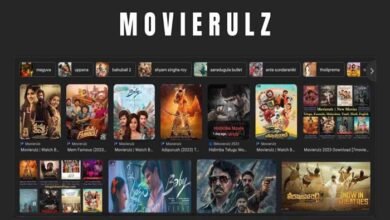The phrase “movie was” often pops up in film criticism and casual conversations about cinema. It serves as a prelude to a more detailed opinion or critique, subtly influencing the reader’s expectations about a film. This post examines how the use of “movie was” in various contexts can significantly impact a film’s reception and the audience’s decision to watch it.
Historical Use of “Movie Was” in Reviews
Tracing back to the early days of film criticism, “movie was” has been a staple in providing concise, impactful movie evaluations. This section explores how the phrase has been historically used to shape the early impressions of countless films, setting the stage for detailed critiques.
Analyzing the Impact on Audience Expectations
When a critic says a “movie was disappointing” or “movie was exhilarating,” it immediately sets expectations. Here, we delve into psychological studies and audience feedback to understand how these brief introductions in reviews influence individual expectations before even viewing the film.
“Movie Was” in Online vs. Print Media
The usage of “movie was” varies significantly between online and print media. Online platforms often allow for more dynamic, conversational styles, while print might retain a more formal tone. This part examines how the medium affects the use and impact of the phrase.
Role of “Movie Was” in Social Media Discussions
In the age of social media, phrases like “movie was” become viral snippets that can either boost a film’s popularity or doom it to obscurity. This section looks at case studies where social media significantly amplified the effect of movie critiques.
Influence on Box Office Performance
The financial implications of the phrase “movie was” are immense. This segment analyzes box office trends following various pivotal reviews, illustrating how a critic’s initial words can affect a movie’s financial trajectory.
Critics vs. Viewers: Differing Perspectives
Often, what a critic implies with “movie was” can diverge widely from general audience opinions. This part explores this discrepancy, providing insight into why critics and viewers might react differently to the same film.
Evolution of the Phrase in the Digital Age
The digital era has transformed how movie reviews are consumed and perceived. Here, we discuss the evolution of film criticism language, particularly the role of “movie was,” in the rapidly changing landscape of digital media and short-form content.
Ethical Considerations in Film Criticism
Critics wield power with their words. This section considers the ethical implications of film reviews, particularly how the use of phrases like “movie was” should be managed to maintain fairness, accuracy, and integrity in journalism.
Enhancing Viewer Engagement Through Reviews
How can critics use “movie was” to enhance rather than dictate viewer engagement? This part offers strategies for critics and bloggers to craft reviews that encourage audiences to experience films themselves, despite the initial critique.
Conclusion
The phrase “movie was” plays a pivotal role in film criticism, subtly yet significantly influencing both the film industry and moviegoers’ choices. By understanding its impacts and nuances, both critics and fans can engage with film reviews more critically, appreciating the depth beyond these initial impressions.
FAQ
1. Why is the phrase “movie was” so influential in film reviews?
“Movie was” acts as a quick summary of the critic’s view, setting the tone for the review and framing the reader’s expectations about the film.
2. Can a single phrase like “movie was” truly affect a movie’s box office success?
Yes, especially when coming from influential critics or platforms, such phrases can sway public perception significantly, impacting a movie’s overall success or failure at the box office.
3. How should moviegoers interpret the phrase “movie was” in reviews?
Moviegoers should see it as an entry point to a broader critique, not a definitive judgment. It’s best to read full reviews and consider multiple opinions before forming a personal viewpoint.
4. How has social media changed the use of “movie was” in film discussions?
Social media has amplified the impact of such phrases, allowing them to reach a wider audience more quickly than traditional media channels. Viral snippets can dominate the conversation and influence public perception extensively.
5. What should critics consider when using “movie was” in their reviews?
Critics should strive to balance succinctness with clarity, avoiding overly broad statements that could mislead or misrepresent the film. Ethical considerations, such as fairness and objectivity, should also guide how they frame their initial impressions.





